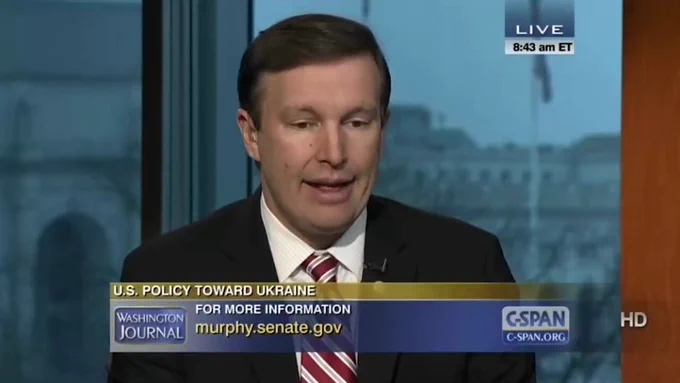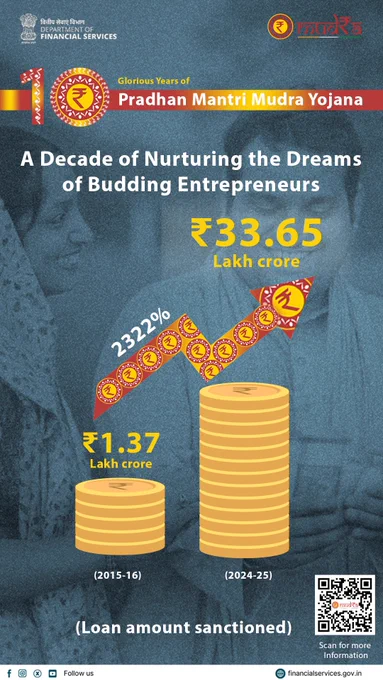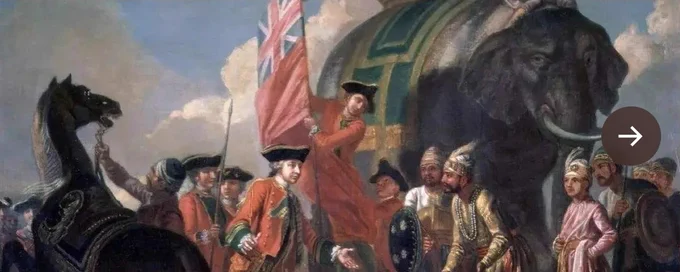Search results for sanctions
People
Not Found
Tweets including sanctions
US REMOVES SANCTIONS AGAINST CRYPTOCURRENCY MIXER TORNADO CASH
0
0
88
1.8K
199
Poroshenko to strengthen sanctions against Russia during his last days in office https://t.co/giehtZu4sz @poroshenko @SecPompeo @AmbJohnBolton


0
0
0
0
0
Meet me next week in London🇬🇧 in Baltic Symposium 2025 where I will be talking about security risks posed by russian #shadowfleet# and #sanctions# as a response to these threats!
It’s free to attend, so do not hesitate and register here: https://t.co/qnJrN3Kfev
Show more


0
0
0
2
1
Kaiser mental health hunger strike day one of five. Kaiser has failed to provide timely access to clinically appropriate mental health care for decades to the tune of millions in state sanctions and fines and with fatal consequences for our patients. Enough is enough.
#mentalhealthawareness# #mentalhealthmatters# #kaiserstrike2025# #kaiserstrike# #endtheinequity# #unionstrong# #solidarity# #kaiserpermanente#
Show more

0
0
1
6
3
In 2014, Senator Chris Murphy bragged about the United States successfully overthrowing Ukraine's government:
"I think it was our role, including sanctions and threats of sanctions, that forced, in part, Yanukovych from office."
"We have not sat on the sidelines. We have been very much involved. Members of the Senate have been there. Members of the State Department have been on the Square."
"The Obama administration passed sanctions. The Senate was prepared to pass its own set of sanctions, and as I've said, I think that the clear position of the United States has, in part, been what has helped lead to this change in regime."
"If, ultimately, this is a peaceful transition to a new government in Ukraine, it will be the U.S. on the streets of Ukraine who will be seen as a great friend in helping make that transition happen."
"There is a U.S. interest here. We are in the middle of negotiating a new trade agreement with Europe. To my state, it's enormously important. We do 40% of our trade in Connecticut with Europe."
"If Ukraine is part of the EU and thus is part of this new trade agreement with the United States, that could result in billions of dollars in new economic opportunities for the U.S."
"So, we do have an economic interest in Ukraine being a part of the EU, and we shouldn't be shy about making that interest clear."
Show more

0
0
2.1K
32.5K
15.7K
Worn-out, uninsured tankers full of Russian oil sail through the North Sea several times a day.
With these boats, Russia is evading sanctions, funding the war in Ukraine and threatening maritime safety.
Story by @MoneyInPolitics
https://t.co/UFbtSEbEWY
Show more


0
0
0
1
0
GOD's love comes with GOD's disciplines
Hebrews 12:6 For the Lord disciplines the one He loves, and He chastises every son He receives.
The way GOD loves is not the same as a man loves. Those who misunderstand His love as a man's love will find GOD's love irrational. When a man loves, as seen when a man loves a woman, he loves her for what she represents, as if she is a product carrying a perceived promise. He loves for a reason or with a motive. No one loves for no reason except for the sake of loving. Unless he is like GOD, loving unconditionally. GOD proves His unconditional love: While we were still sinners, Christ died for us. That is, despite us being vile, detestable and hideous according to His standard, GOD still loves us by dying for us. His love compels Him to do whatever is needed to make us right with Him so that we can be the beneficiaries of His goodness.
Some might think that GOD is blinded by love. Yes, He is because love takes no records of wrong. Since GOD is love, His love is blinded to our sins, and for us, He can sacrifice 100% of Himself without consideration for Himself. For love, Jesus could, as in the Epistle of Philippians: Existing in the form of God did not consider equality with God something to be grasped, but emptied Himself, taking the form of a servant, being made in human likeness. And being found in appearance as a man, He humbled Himself and became obedient to death— even death on a cross. For love, Jesus bears all things, believes all things, hopes all things, and endures all things.
The main difference between GOD's love and a man's love is that one comes out of selflessness and the other out of selfishness. A man cannot sacrifice himself because, by nature, he is selfish. This nature is not a biased opinion but a biblical fact. The Bible has other terms to describe our selfishness: selfish ambition, vain, conceit, lovers of selves, self-seeking, pleasing ourselves, seeking our good, etc. His love is self-seeking for the enlargement of his ego, for his egoistic carnal ambitions. Hence, a man's love is not pure but tinted with motives, schemes and deceits. To elaborate, if a man loves a woman because she is an angel, talented or beautiful, his love is laced with motives. No matter how noble it might sound, it is filled with 'I love you because'. It is not a love of 'I love you regardless'. One day, a person might outlive their appealing attributes, and the reason for love will no longer exist. Then what happens? Love is liken to having wings, and it will fly away. Time will reveal the foundation of a man's love. Is it as solid as a rock, or is it as shifting as the sand?
GOD's love is unchanging with time and is unconditional in what may happen. Nothing can change His love. The Epistle of John writes, "For God so loved the world that He gave His one and only Son, that everyone who believes in Him shall not perish but have eternal life". The phrase 'GOD so loved the world' that John uses is unprecedented because GOD does not approve or accept the world. The people of the world, according to the Apostle Paul, are people of the flesh who are hostile to God. They do not submit to God's law, nor can they do so. Those of the flesh cannot please God. In the Epistle of 1 John writes, "Do not love the world nor the things in the world. If anyone loves the world, the love of the Father is not in him". The message is clear - despite His opinion of the world, He refrains from judgment and loves the world without prejudice and discrimination. Even if we are the vilest of sinners, His love will still cover us. No one will be ostracized from His love, and His arms are always open to everyone. That is how deep and how wide the love of GOD is.
GOD's love is indeed magnanimous. It is a haven for all sinners, where GOD's judgement has to stay outside and where sinners find solace. In His love, there is no condemnation and where sins can hold nothing against us. His love becomes our source of comfort, strength and hope. No doubt, in His love is where everyone wants to dwell. Therefore, it is a topic that is well-preached and sung about. However, unbeknown to many, no matter how great GOD's love is, His love is not above His law. And no matter how much GOD loves us, He cannot allow us eternal life without complying with His law. The law states that eternal life only comes through Jesus Christ, and only those who believe in Him shall not perish but have eternal life. The Apostle John could have stated, 'For God so loved the world that He gave His one and only Son so that everyone shall not perish but have eternal life', and that would be so sweet. But he did not. That is to say, GOD's love is unconditional, but eternal life is conditional. Think about it: Metaphorically, could GOD allow the hand of His love to slap the face of His law? That will be foolish of Him.
No matter how much GOD loves us, He does not allow us to trespass against His law. In other words, He does not allow us to sin against Him. Therefore, His love is not above His law. However, many have misconstrued GOD's love to supersede His law, quoting from the Apostle Paul that we are no longer under law but under grace. That is picking words out of context. The Apostle Paul did not suggest that grace had replaced the law. He only meant that when we believe in Christ, our master is no longer sin but Christ. Therefore, we are no longer slaves to sin but to righteousness. When we no longer sin, we are no longer under the law, and the law has nothing against us. We can understand it in this way: if we do not contravene any legislation, the government will not come after us. We will not be under any sentence of imprisonment, a fine, or other sanctions and are free to do whatever we want. In biblical terms, when we are not under the law, we are under grace. We are only under grace if we do not sin. We must remember that nothing is above the law, not even GOD's love. Therefore, we should not go overboard when anyone tells us that GOD is madly in love with us. It does not mean anything, as it is not an open door to eternal life, and it does not give us a license to sin.
If GOD's love is not a ticket to eternal life, then what is its purpose in the architecture of humanity? Though GOD's love cannot directly give us what we want, it can pave the way there. As an analogy, GOD's love is like a mother's love, nurturing a child for greatness. Though a mother cannot bestow greatness on her child, she can nurture the greatest within him so that he can be great by his own merits. GOD's love will nurture us from sinners to saints, so by our merits, we will enter heaven. We will be able to stand tall among angels because we do not enter, figuratively, by the back door. In this journey to sinning no more, GOD promises that He will not leave us nor forsake us. He will be our refuge and strength, an ever-present help in trouble. No matter how many times we fall because of our weakness, like the Apostle Peter, GOD will be there to pick us up because His love will never fail. Like in the Apostle Paul, GOD's strength is made perfect in his weakness. He will be ours, too.
GOD's love is not based on merits. Anyone is qualified for it. Therefore, no matter where we are in our relationship with Him, He will accept us as who we are. Even if we are the vilest sinners or non-Christians, GOD has no issue with that. He wants to give to us and not take from us for His purpose. Therefore, there are no criteria, conditions, or baselines except that we wish for His love. For the fallen world, He is willing to sacrifice the most precious of heaven, Jesus Christ, in suffering for its redemption so that heaven's gate is open for all who wish to enter. However, eternal life is not as simple as Apostle John put it simplistically - everyone who believes in Him shall not perish but have eternal life. What should we believe in Him, then? That He is the Son of GOD? Even the demons, Legion, knew that. Yet, it got them nowhere except to be cast into the pigs. We need to believe more than that. We need to believe every word of Jesus. If we say we believe, then we must do accordingly. If not, we are as good as non-believers. In GOD's context, knowing His Word is not enough, as we must be doers of His Word.
When we believe in Jesus, we must be doers of His Word. Only when we do that will we not perish but have eternal life. Well, this is easier said than done. Many might be unaware that to be a doer of His Word is to sin no more. However, expecting a sinner to 'sin no more' is more challenging than for a drug addict to be drug-free. David wrote, "Surely I was brought forth in iniquity; I was sinful when my mother conceived me." That means we are born in a state of sin, and we have been doing wrong since birth. Hence, to 'sin no more', we need to do more than change the habit of sinning; we need to eradicate the DNA of our sinful nature. If not, we are clean on the outside, while on the inside, we are still unclean.
We need a spiritual transformation of our inmost being. Without this, we will never be free from our sinful nature. That is when GOD's love comes with care, support and guidance, seeing us through our transformation of dying to our sinful selves and being empowered by Him in obedience. His love will surround us like a tiger mother, coaching us to stand against our enemy, the devil, who prowls around like a roaring lion waiting to devour us. GOD will discipline us to be fierce warriors against the devil's schemes and chastise us in our areas of weakness so that the devil will not have a foothold in us. We should not underestimate the devil as he can cause the downfall of any man and create havoc in anyone's life. Looking at the destruction he did to Job, we should be wary of him. As described in the Book of Ezekiel, the devil is the seal of perfection, full of wisdom and perfect in beauty. We are no match for him. If GOD is not with us, disciplining and chastening us to obedience, many would not be able to elude the devil's perfect temptation, causing us to sin. We will fall like Adam and Eve without any resistance.
The Epistle of Hebrews writes, "No discipline seems enjoyable at the time, but painful. Later on, however, it yields a harvest of righteousness and peace to those who have been trained by it. Therefore strengthen your limp hands and weak knees. Make straight paths for your feet, so that the lame may not be disabled, but rather healed." GOD loves us, and He has our best interests at heart. Through discipline, our limp hands and weak knees will be strengthened so we will not fall into sin away from GOD. Consequently, we will overcome sin and not perish but have eternal life.
Show more

0
0
0
1
0
How State-Sanctioned Donor Doxxing Threatens The Pro-Life Movement
In many states, legislators have introduced bills to make advocacy organizations disclose their donors; the goal is silencing conservatives.
https://t.co/N7OvNJUBn9
Show more


0
0
0
0
0
What is the total value of loans sanctioned under the PM Mudra Yojana in its first 10 years?
#NewIndiaTrivia#
#NewIndia#
#MyGov#
0
0
3
18
2
Over the past decade, nearly ₹33 lakh crore sanctioned to over 52 crore MUDRA loan accounts has enabled countless small entrepreneurs to become part of India's growth story.
#10YearsofMUDRA# https://t.co/JoXhmxobXB
Show more

0
0
2
49
19
#10YearsofMudra# A Decade of Empowering Dreams! From ₹1.37 Lakh Cr (2015-16) to ₹33.65 Lakh Cr (2024-25) —2322% growth in loans sanctioned to entrepreneurs. India rises, one dream at a time https://t.co/NccNnn7oTC
Show more

0
0
0
20
24
Empowering Businesses Across India! Collateral-free Mudra loans support manufacturing, services, trading, and agri-allied sectors. Over 52 Cr loans worth ₹33+ Lakh Cr sanctioned—70% to womenpreneurs, 50% to SC/ST/OBC, and 31% to new entrepreneurs. #10YearsofMudra# https://t.co/U2WaiOpXMj
Show more

0
0
3
22
26
Igniting entrepreneurial dreams across India! Under #PMMY#, ₹33.65L Cr in collateral-free loans sanctioned: ₹11.74L Cr (Shishu), ₹13.61L Cr (Kishor), ₹8.27L Cr (Tarun), ₹3,190 Cr (Tarun Plus). #10YearsofMudra# #EmpoweringIndia# https://t.co/vYP0PvV80Y
Show more

0
0
3
17
21
Launched 10 years ago by Hon'ble PM Shri @narendramodi, the PM MUDRA Yojana has fuelled the dreams of countless entrepreneurs, with over 52 crore collateral-free loans worth ₹33 lakh crore sanctioned till date.
#10YearsofMUDRA# https://t.co/ayfSJzTQt9
Show more

0
0
29
252
95
The new sentencing guidelines being introduced on the 1st April 2025 prioritise “tailored punishment” based on identity—not just crime. White working-class men now face systemic bias. Is this the state-sanctioned demasculinisation of men? No wonder our military and police are collapsing. #SentencingBias# #UKJustice#
Show more
0
0
1
5
3
You don’t understand Vietnam.
You don’t understand Asia.
And frankly, you don’t understand power.
You speak of "destiny" like some overconfident schoolboy mistaking American suburbia for geopolitical insight.
Let me say it clearly:
Vietnam is no one’s vassal. Not China’s. Not America’s. Not anyone’s.
We didn’t spend a thousand years resisting Chinese dynasties just to roll over today.
We didn’t shatter French colonialism and bleed the most powerful military in the world to death in the jungles of Quảng Trị just to be told what our "destiny" is by someone who thinks Canada is the model for sovereignty.
You confuse proximity with submission, and trade with dependence.
That’s your first fatal error.
Vietnam shares a border with China—yes.
But we also share something deeper:
A memory.
Of war. Of peace. Of resistance. Of cooperation.
And unlike you, we understand the psychology of coexisting with power.
We know how to draw lines—how to defend them when we must, and how to keep the peace when it serves us.
Your comparison to Canada is not only lazy—it’s insulting.
Canada gave up its spine long ago.
Vietnam never had the luxury.
We learned to survive when survival meant fighting giants.
Canada outsourced its soul to Washington. Vietnam forged its own.
You think strategic autonomy is impossible? You’re already behind.
Vietnam already has it.
We trade with China.
We trade with the U.S.
But we serve neither.
We hosted Biden. Then we hosted Xi. Then we hosted Putin.
That’s not vassalhood.
That’s leverage.
That’s multipolarity in motion.
You're stuck in a binary world—one where you're either a satellite or a superpower.
That worldview is collapsing, and you don’t even see the cracks.
And here’s the part that stings the most, isn’t it?
Vietnam, a country bombed into the Stone Age, is walking into this new world with more dignity and independence than your empire ever had.
We don’t need 800 bases to feel strong.
We don’t need to sanction the planet to stay afloat.
We don't need to threaten war to be heard.
We just stand. And we endure.
While your empire panics over TikTok and builds trade policy out of fear, Vietnam navigates history with memory, clarity, and will.
So no—we are not destined to be anyone’s vassal.
We were forged by fire.
You were softened by comfort.
And as the empire you worship drowns in its own debt, division, and delusion, Vietnam will still be here.
Anchored by history.
Sharpened by struggle.
And free by choice.
Don’t mistake survival for subservience.
Don’t mistake proximity for control.
And don’t ever mistake Vietnam for a pawn.
We were born in resistance.
And we don't kneel.
Not then.
Not now.
Not ever.
Show more
0
0
45
927
195
I don't know why @rickawsb wrote his article in Chinese but here's an unfiltered English version of it:🧵👇
The “GENIUS Act” and the New East India Company: How USD Stablecoins May Challenge Fiat Systems and Nation-States
By: Rick AWSB
“This is an extremely sophisticated asymmetric strategy. The U.S. is exploiting its adversaries’ weakest point fear of losing control to build its own moat.
I. Ghosts of History: The Digital Return of the East India Company
History doesn’t repeat, but it does rhyme.
When Trump happily signed the GENIUS Act into law, what came to mind was a powerful image from history: the East India Companies of the 17th and 18th centuries commercial behemoths granted sovereign powers by their nations. These were not mere merchants, but corporate sovereigns, blending soldiers, diplomats, and colonizers.
This Act, though appearing like a regulatory tweak, in truth marks the chartering of 21st-century “New East India Companies” stablecoin issuers gaining legitimacy through U.S. law. It's the beginning of a transformation in global power dynamics.
1a. Charters of a New Power
Four centuries ago, the Dutch and British East India Companies (VOC and EIC) had the power to hire armies, mint currency, make treaties, and wage wars. Their state-backed monopolies defined the age of globalized sea trade.
Today, the GENIUS Act essentially charters modern-day equivalents stablecoin giants like Circle (USDC), potentially Tether, and possibly tech giants like Apple, Google, Meta, and X. No longer rebellious crypto startups, they are now pillars of U.S. financial strategy. Their “routes” aren’t sea lanes, but 24/7 borderless financial rails the new arteries of global commerce.
1b. From Trade Routes to Financial Rails
The old companies controlled physical routes with cannons and forts. These new “digital East India Companies” will control global value flows. If a U.S.-regulated stablecoin becomes the default for cross-border payments, DeFi, and real world asset trading, its issuer gains immense soft power defining compliance, freezing assets, and setting financial norms.
1c. Symbiosis and Conflict with Nation-States
Like their historical predecessors, today’s stablecoin giants may evolve from tools of national strategy to independent power centers. Initially supporting U.S. hegemony and countering China’s e-CNY, they may eventually act in ways that contradict U.S. foreign policy, especially as their shareholder interests diverge from state agendas.
The U.S. may face tension between control and dependence, possibly leading to future updates to the stablecoin legal framework.
II. Global Monetary Tsunami: Dollarization, Deflation, and the End of Non-Dollar Central Banks
The GENIUS Act is more than a charter. It’s the start of a monetary tsunami. The collapse of the Bretton Woods system in 1971 laid the groundwork. In the coming era, people in fragile economies may prefer stablecoins over failing national currencies, leading to hyper-dollarization and devastating local deflation.
2a. The Ghost of Bretton Woods
Under Bretton Woods, the dollar was tied to gold and all other currencies to the dollar. This created a paradox (Triffin Dilemma): to support global trade, the U.S. had to run deficits which eventually undermined confidence. Nixon severed the gold link in 1971, ending the system.
The dollar was reborn as a fiat instrument backed by U.S. strength and network effects. Now, U.S.-approved stablecoins elevate this to a new level bypassing national banks and reaching every smartphone directly.
2b. Hyper-Dollarization
In places like Argentina and Turkey, people flee inflation by using dollars. Stablecoins remove friction: no banks, no capital controls, no physical risk.
From Vietnam to Dubai, and Yiwu to Hong Kong, stablecoin usage is exploding. When inflation rises even slightly, capital doesn’t “flow out”. it vanishes instantly into the crypto ether. This threatens national currencies with obsolescence.
2c. Deflation and the Disappearance of State Power
Once hyper-dollarization hits, governments lose:
• Seigniorage (printing money)
• Monetary policy tools
The result: plummeting local currencies, collapsing tax bases, and failed governance.
The GENIUS Act, combined with tokenized real-world assets (RWAs), may accelerate this collapse.
2d. White House vs. The Fed
Domestically, a conflict may brew. If a Treasury-controlled stablecoin system emerges, it could sidestep the Fed, allowing the Executive Branch to exert monetary influence directly especially in election years or sanction enforcement. This may trigger a crisis in faith over Fed independence.
III. The 21st Century Financial Battlefield: U.S. vs. China and the “Free Financial System”
Externally, the Act is a strategic maneuver in the U.S.-China rivalry an ideological and infrastructural clash.
3a. A New Financial Iron Curtain
Like the post-WWII Bretton Woods institutions (IMF, World Bank), this new “free finance” network powered by USD stablecoins is open, efficient, and diametrically opposed to China’s model of state-controlled finance.
3b. Permissionless vs. Permissioned
China’s e-CNY is fully controlled, running on private ledgers, with full traceability. The U.S., in contrast, backs permissionless blockchains (Ethereum, Solana). Developers worldwide can build freely, with the U.S. acting as “credibility anchor” for the USD.
This asymmetric strategy attracts innovators and users, while China’s surveillance model alienates them. It’s a contest China structurally can’t win.
3c. Bypassing SWIFT: A Dimensional Attack
China and Russia attempt to sidestep SWIFT. But stablecoins render that effort obsolete no middlemen needed, no banks required. The U.S. isn't defending old infrastructure; it's creating a parallel game with new rules enforced by code, not treaties.
3d. Winning the Network Effects War
The fusion of the dollar with crypto’s innovation creates an exponential network. Developers and users will flock to where liquidity and freedom are highest.
Compared to the closed, RMB-centric e-CNY, the open USD ecosystem will dominate globally beyond China’s limited spheres of influence.
IV. The De-Nationalization of Everything: RWA, DeFi, and the Collapse of State Control
Stablecoins are the Trojan Horse. Once users hold stablecoins, the next step is tokenizing all assets, stocks, bonds, real estate, IP into on-chain digital instruments, detaching them from national jurisdiction.
4a. Stablecoins as the Trojan Horse
Governments welcome regulated stablecoins as safe crypto. But in doing so, they unintentionally onboard users into crypto ecosystems one tap away from Bitcoin, ETH, DeFi, and privacy coins.
Platforms like Coinbase become one-stop crypto supermarkets. USDC is the gateway drug leading users toward more freedom, higher yield, and greater autonomy.
4b. RWA: Assets Escape National Jurisdiction
Imagine:
• A Chinese team tokenizes app ownership
• Traded on a permissionless DeFi protocol
• An Argentinian buys it with stablecoins
No bank, no SWIFT, no borders.
This isn’t just new payment rails it’s a parallel universe outside the Westphalian order. When capital de-nationalizes, so do capitalists.
4c. The End of Traditional Finance
Banks, brokers, and payment systems exist to mediate trust. Blockchain replaces this with public, tamper-proof records and smart contracts.
Functions replaced:
• Lending → DeFi protocols
•Trading → AMMs
• Payments → Stablecoin transfers
• Securitization → RWA tokenization
V. The Rise of Sovereign Individuals & The Twilight of the Nation-State
When capital flows freely, assets ignore borders, and power shifts to networks and private giants, we enter a post-national age where the individual becomes sovereign.
5a. The Prophecy of The Sovereign Individual
In 1997, Davidson and Rees-Mogg predicted that the Information Age would make power more mobile than ever. The state would be unable to tax knowledge and capital that exists online.
Stablecoins, DeFi, and RWA make this real. A person can now:
• Hold global assets
•Move capital instantly
• Stay outside any one jurisdiction
States lose grip. And their ability to tax or control fades.
5b. The End of the Westphalian System
Since 1648, the world has been ruled by nation-states. But if productive individuals live in cyberspace, state borders become meaningless.
States may resort to coercion predatory taxes, surveillance accelerating elite exit. Eventually, they may become "nanny states" serving only immobile, less wealthy citizens.
5c. The Final Frontier: Privacy vs. Taxation
Today’s chains are transparent. But zero-knowledge tech (ZKPs) will bring complete anonymity.
Combined with stablecoins, this creates an untouchable financial black box breaking the state’s final tool: taxation.
Conclusion:
The French Revolution replaced monarchs with nations. This revolution led by stablecoins and AI replaces territorial sovereignty with network and individual sovereignty.
It’s not just a transfer of power it’s a decentralization and de-nationalization of power.
We are witnessing the breakdown of an old world and the birth of a new order that grants individuals unprecedented freedom, but also unleashes unprecedented chaos.
Show more

0
0
26
37
14
In this earthquake footage, you can see two sections of Earth's crust sliding past each other.
Pay close attention to how the ground moves on the other side of the fence.
https://t.co/fX86UUmCJs

0
0
43
305
52
coming soon on studio:
- fee/LP redirect for CTOs on new coins
- dedicated landing page for easier token discovery
- sections to spotlight interesting creators & communities across jup sites
- manual token verification process for strong tokens
- airdrop tools for creators
gn and godspeed to devs next week <3
Show more
0
0
20
42
4
CCTV footage from February 2025 showing self-proclaimed Christian prophet Baljinder Singh assaulting his employees, including women, has gone viral. This comes shortly after the Kapurthala Police filed an FIR against him under IPC sections 354-A, 354-D, and 506 for sexual harassment, stalking, and criminal intimidation, following a complaint from a 22-year-old woman. Despite this, no action has been taken against him yet.
Show more

0
0
39
440
156
















